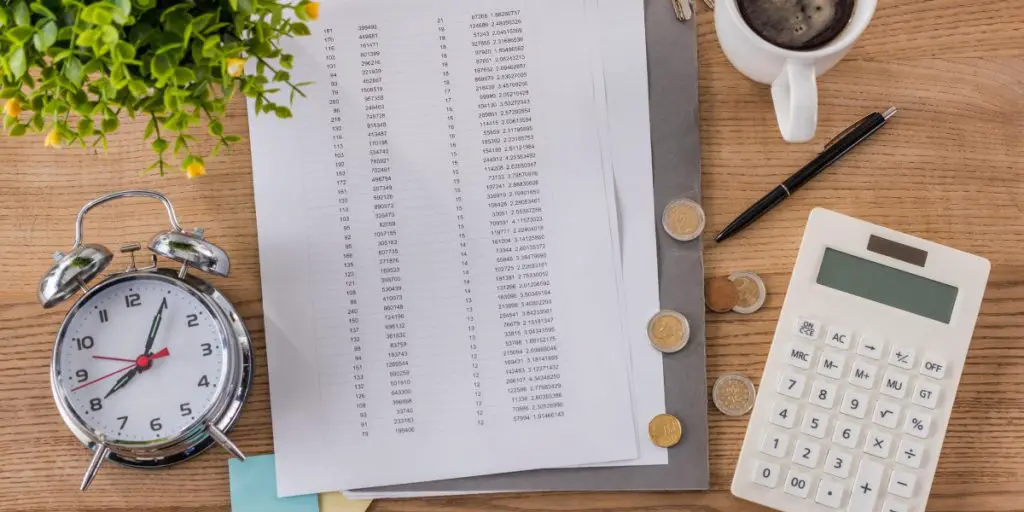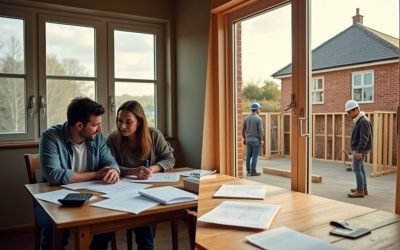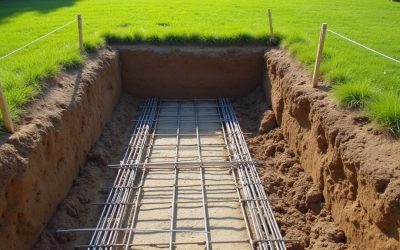Second homes are often seen as a luxury item. They’re expensive, need maintenance, and aren’t always practical. This leads many to consider if a second home can also be converted into an investment property?
You can convert a second home into an investment property in the UK. You would need to apply for permission from the local council and then register with HM Revenue & Customs (HMRC). The conversion must comply with building regulations and any other relevant legislation.
Converting to a rental property allows you to generate an income that will cover the cost of ownership.
I’ll walk you through the most common ways to convert a second house into an investment property and explain why each option works.
You’ll learn how to make a profit even if you live in a second home.
Benefits of converting a second home into an investment property
There are some compelling reasons to go through this transformation process.
1. Increased rental income
Converting a second home into an investment property will give you a new source of income. You can rent it out and use the income to cover the ongoing costs (e.g. mortgage, maintenance) and if priced correctly you can make a profit.
It’s important to speak to your accountant first to confirm how this will affect your income tax and capital gains tax liabilities. If you don’t have an accountant speak then you are welcome to contact our recommended accountant.
2. A secondary residence for vacation or retirement
As many who buy a secondary residence can offer a more desirable location than those looking purely for an investment opportunity, it is likely the secondary home is somewhere you and others would like to visit.
If you create a holiday rental property, you’ll gain income during the holiday season and still have access to take a break there yourself when there is less demand off-season.
If you love the area and the property, this can be a great way to pay off the mortgage and make improvements so that one day you can live there full-time when you retire.
3. An easier path to becoming a landlord
The biggest barrier to becoming a landlord is finding and purchasing suitable property, but as you already have a second home you’ve already taken the hardest step.
There are other elements you’ll need to consider, such as obtaining landlord insurance, arranging a maintenance team and considering the impact on your tax bill, but those are issues you’d face as a landlord anyway.

What are the risks of converting a second home into an investment property?
There are some issues to be aware of that may put you off converting a second home into a rental property.
1. Tax implications
If you plan to live in the property, there are no tax implications. However, if you plan to rent it out, there are a few things to consider.
The first is you will need to declare the income from the property on your taxes. You may also be eligible for certain deductions, such as the mortgage interest deduction.
Secondly, you will need to be aware of capital gains taxes. If you sell the property for more than you paid for it, you will owe capital gains taxes on the profit.
If you don’t have a tax advisor I suggest talking to our recommended accountant, Chris Oxley from UHY Hacker Young.
2. Loan-to-value
A second property can have significant implications for your loan-to-value (LTV). If you are taking out a mortgage on a second property, the maximum loan to value you can usually borrow is 75-80% because second properties are considered to be higher risk by lenders.
This means that if you are looking to buy a second property, you will need to have a larger deposit saved up.
If you are converting a second home into an investment property, you will need to have at least a 5% deposit. This is because lenders want borrowers to put down a bigger deposit when buying a property as a buy-to-let.
3. Loan options
If the property does not appreciate in value, or if rental income is not high enough to cover loan payments, you may end up in a difficult financial situation.
This is especially true for those with multiple properties and mortgages: be sure to have a healthy savings pot in place to see you through lean times.
4. Additional Responsibility
Renting out a property comes with added responsibility and costs that aren’t present when it’s your own home. You’d be responsible for maintaining the house, collecting rent/obtaining bookings, and keeping tenants happy.
It sounds pretty straightforward, right? Well, it isn’t quite that simple. There are several things landlords need to think about when running a successful property management business. Here are three often overlooked examples of the extra responsibility you’ll face:
Be Prepared For Any Emergencies
There are times you’ll be called on to deal with emergencies, for example to repair broken appliances, fix plumbing issues, replace furniture, or perform other tasks.
Make sure you have a plan for dealing with emergency situations. This should include hiring a plumber, electrician, handyman, carpenter, painter, etc., depending on the nature of the problem.
Communicate With Tenants Regularly
Communication between landlords and tenants is key to maintaining a positive relationship.
Keep in touch with your tenants regularly. Send emails, text messages, and letters to let them know what is going on with the property.
This helps ensure that everyone knows what is happening with the property and keeps communication open.
If you have a short-stay holiday home you’ll need to collect feedback and visitor reviews to help promote the house to others.
Maintain Records
Keeping records is essential to running a successful property management company.
Record everything from complaints to maintenance requests. These records will help you understand what is working and what is not, and may be required as evidence in the event of a problem.
Records help you identify trends and patterns in your rentals, keeping accurate records allows you to track performance over time.

How do you convert a second home into an investment property?
You’ve got the perfect property you know people who will want to rent it, so what’s next?
Step 1: Research the local market
You will need to research the local market before converting your second home into an investment property.
It’s important to be familiar with the area and have an understanding of what’s new and happening in the market.
What will attract people to the property, what are the transport links, and what do others in the area charge for a similar location and property?
Step 2: Determine the most profitable rental strategy
Once you’ve gathered information on the local market, you need to determine the most profitable rental strategy for your second home.
You will need to consider factors such as your location and amenities. If it’s to be rented out as a holiday home you’re pricing strategy might change depending on seasonality and demand.
You can use this information to create a marketing campaign that targets potential renters in your area.
Step 3: Refurbish and declutter the property
If you’ve had a second home for some time it’s very likely you’ve got it decorated to your tastes and have stored your possessions there.
In time we get used to the condition of a property, take a step back and try to look at the place as if you’ve never been there (or better yet, take someone who has never been there to give you feedback) and consider what needs doing to make this an appealing property.
A lick of paint, new carpets, fixing the squeaky door etc are all small jobs that make a big difference to people’s first impression.
Remove anything you’ve left there for storage and swap out any personal photos with general artwork.
Step 4: Check your mortgage details
If you’re looking to convert a second home that has a mortgage into an investment property, one of the first things you’ll need to do is check the terms of your existing agreement. Does it allow you to rent the property out?
If not you’ll need to contact your existing provider and see what your options are.
If you decide to change to a different provider then I’d recommend using a good mortgage broker to help you find the best option for your needs.
Step 5: Get the right insurance
As with your mortgage, your existing insurance may not be right for a rental property. Contact your existing provider to discuss current terms and options.
Step 6: Manage your property well
Once you’ve launched your new rental property, you’ll fall into a regular pattern of jobs. You’ll need to find tenants/holiday bookings, maintain the property, collect payments, address issues and all the other tasks that come with being a landlord.
FAQs
What is an investment property?
An investment property is a property that is purchased with the intention of earning a return on the investment, either through rental income, future resale value or both.
What are the benefits of converting a second home into an investment property?
When you own an investment property, there are different benefits than when you own a second home.
You may be able to use the income from your investment property to offset the cost of owning a second home.
Additionally, you can write off expenses when you own an investment property.
Converting a second home into an investment property can generate more income; however, there are legal, mortgage, tax and insurance implications to consider before making the switch.
What are the tax implications of converting a second home into an investment property?
A second home is a property that you live in part of the time, while an investment property is not.
Mortgage considerations and tax rates may differ depending on whether a second home or investment property is being considered.
A second home can be a great investment property when the mortgage payments and taxes are lower than those of your primary residence.
Final Thoughts
Rental income is an excellent way to generate extra cash, and while some of it will need to be invested back into the property, you can use the profit to improve your primary residence, or just pay off the mortgages faster on both.
Think carefully before deciding if the second home should be a rental property or vacation property, which you decide will depend on the location and demand.
If it’s located far away from your location, make sure to have a local team or appoint a property manager, to address any issues that arise that need to be dealt with ASAP.
- How Do Most People Finance Home Extensions? - December 14, 2024
- What Do You Need to Know About Foundations for a Single Storey Extension? - December 14, 2024
- 10 Key Changes to New Planning Permission Rules for 2024 - December 13, 2024



